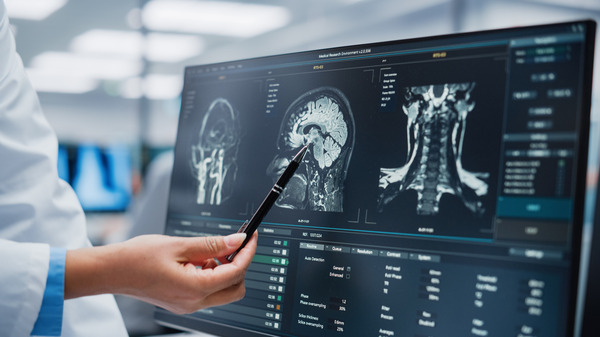Traumatic brain injuries (TBI) are some of the most serious and potentially life-altering injuries a person can sustain. Often resulting from accidents like car crashes, falls, or sports injuries, TBIs can lead to long-term physical, cognitive, and emotional complications. The key to minimizing these effects is early intervention.
This blog will explore why early TBI diagnosis is crucial, the potential consequences of delayed treatment, and how timely medical care can improve outcomes. At Ernst Law Group, our California brain injury lawyers understand the complexities of TBI cases and are committed to helping victims get the care and compensation they deserve.

Why early TBI diagnosis is critical
Early diagnosis of a traumatic brain injury is essential for several reasons. The sooner a TBI is identified, the sooner treatment can begin, reducing the risk of long-term complications and improving the chances of recovery. Unfortunately, because some brain injuries may not present immediate symptoms, they often go undiagnosed for days or even weeks after an accident. Understanding the importance of early TBI diagnosis can save lives and prevent further deterioration of a person’s health.
Preventing long-term complications
One of the primary reasons for early diagnosis is to prevent the long-term effects of a brain injury. Even a mild TBI, such as a concussion, can have lasting impacts if not properly treated. Untreated TBIs can lead to conditions like chronic headaches, memory loss, difficulty concentrating, emotional instability, and even permanent cognitive impairment. Early medical intervention allows healthcare professionals to begin treatment before these issues escalate, minimizing the risk of long-term damage.
Improving treatment outcomes
The success of TBI treatment often hinges on how quickly the injury is diagnosed. Early diagnosis allows doctors to begin therapies to reduce swelling, manage symptoms, and prevent secondary brain damage. Immediate medical care can also reduce the likelihood of conditions such as seizures, blood clots, and further brain trauma. In severe cases, early surgery may be required to prevent brain swelling or remove hematomas (blood clots), which can be life-threatening if left untreated.
Reducing healthcare costs
While TBIs can be expensive to treat, early intervention can help reduce overall healthcare costs. Delayed diagnosis and treatment often require more intensive and prolonged care, as the patient’s condition worsens over time. By catching and treating the injury early, healthcare providers can prevent complications and reduce the need for long-term rehabilitation, saving both the patient and the healthcare system significant expenses.
Signs and symptoms of TBI to watch for
Recognizing the signs of a traumatic brain injury early on is crucial for seeking timely medical attention. After an accident or head trauma, it’s important to watch for both immediate and delayed symptoms of a TBI. While some symptoms may appear immediately, others may take hours or days to develop.
Immediate symptoms
- Loss of consciousness (even for a brief moment)
- Confusion or disorientation
- Severe headaches
- Nausea or vomiting
- Dizziness or loss of balance
- Blurred vision or sensitivity to light
Delayed symptoms
- Difficulty concentrating or memory problems
- Mood swings or changes in behavior
- Sleep disturbances (insomnia or excessive sleeping)
- Chronic headaches
- Fatigue or lethargy
- Seizures
If you or someone you know experiences any of these symptoms following a head injury, it’s critical to seek medical attention immediately for an early TBI diagnosis.
The role of diagnostic tools in early TBI diagnosis
Accurately diagnosing a traumatic brain injury often requires the use of advanced diagnostic tools. These tools help doctors assess the extent of the injury and determine the appropriate course of treatment.
CT scans and MRIs
Computerized tomography (CT) scans and magnetic resonance imaging (MRI) are commonly used to detect structural damage to the brain, such as bleeding, swelling, or fractures. These imaging techniques allow doctors to assess the severity of the injury and identify any immediate threats to the patient’s health.
Neurological exams
Neurological exams assess cognitive functions, reflexes, and motor skills. These exams can help doctors identify subtle changes in brain function that may not appear on imaging scans. Neurological testing is especially important for detecting mild TBIs, which may not appear on CT or MRI scans but can still cause significant issues.
Cognitive assessments
Cognitive assessments evaluate memory, attention, and problem-solving abilities. They are essential for diagnosing TBIs that impact cognitive function and determining the extent of the injury’s effect on the patient’s daily life.
How Ernst Law Group can help
At Ernst Law Group, we understand the devastating impact that a traumatic brain injury can have on your life. Our experienced attorneys are committed to helping TBI victims secure the compensation they need for medical treatment, rehabilitation, lost wages, and other damages. We will work closely with you to investigate the circumstances of your injury, gather critical evidence, and fight for the compensation you deserve.
Contact Ernst Law Group for a free consultation
If you or a loved one has suffered a traumatic brain injury, don’t delay in seeking medical and legal help. At Ernst Law Group, we offer free consultations to help you understand your legal options and guide you through filing a personal injury claim. Contact us today to learn how we can assist you in obtaining the compensation you deserve.




